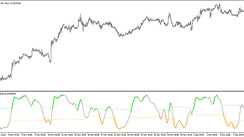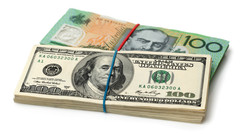Spotlight on U.S. Dollar in European Trade
Tuesday's early European trade session saw the U.S. dollar rising, buoyed by growing Middle Eastern tensions and unease regarding a potential delay in interest rate cuts by the Federal Reserve. The Dollar Index, which gauges the U.S. currency against a selection of six others, was trading at an elevated rate of 102.955 at 09:40 GMT (04:40 ET), following a modest 0.2% gain the prior night during quiet trading amidst a U.S. public holiday.
Risk Aversion Fuels U.S. Dollar’s Surge
The escalating situation in the Middle East, where the Houthi group announced an expansion of targets, including U.S. vessels, following U.S. and British assaults on its Yemen strongholds, increased the U.S. dollar's attractiveness. Yet, predictions about the Federal Reserve's timetable to start interest rate reductions have been the critical recent influence, signaling victory over inflation.
Comments from European Central Bank authorities on Monday, perceived as hawkish, have prompted traders to question the feasibility of imminent global rate reductions. Traders eagerly await a speech from influential Federal Reserve Governor Christopher Waller later today for further clarity.
Sterling Declines on Diminished Earnings Growth
In other news, the release of labor reports recording a slump in average wage growth from 7.2% to just 6.6% in November, saw the GBP/USD decreasing by 0.5% to 1.2658. While the Bank of England is likely to welcome this, it remains cautious due to a high domestic inflation rate. The forthcoming December CPI release is expected to attract substantial interest, with predictions of a drop to 3.8% from November's 3.9% - still far exceeding the central bank's 2% target.
Euro & Yuan Struggles Continue
In the EUR/USD market, the currency pair displayed a 0.5% decline to 1.0896 following confirmation of Germany's December annual inflation rate of 3.7%, up from November's 3.2%. Yet, despite hawkish sentiments from ECB's Joachim Nagel, the euro remained under pressure, with Germany, the Eurozone's largest economy, grappling with ongoing rate hikes. The latter is projected to achieve a mere 0.3% growth in 2024, as per BDI industry association data.
In contrast, the USD/CNY moved in the opposite direction, climbing by 0.3% to 7.1922. The yuan hit a monthly low against the dollar as traders shied away from Chinese assets due to persistent economic anxieties. All eyes are now on the upcoming release of Q4 GDP data for additional insights.
Japan Keeps a Lid on Inflation
Finally, the USD/JPY currency pair rose by 0.5% to 146.49 after indications of continued weak inflation in Japan, underlined by the recent release of soft producer price index data, and a subdued forecast for the soon-to-be-released consumer price index data.





